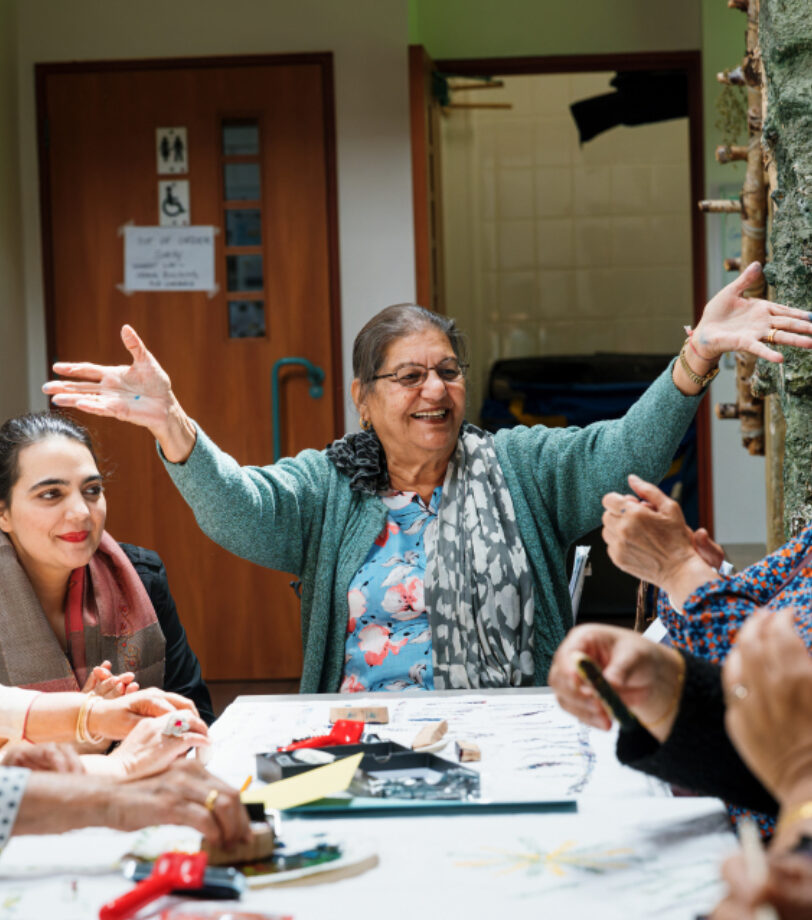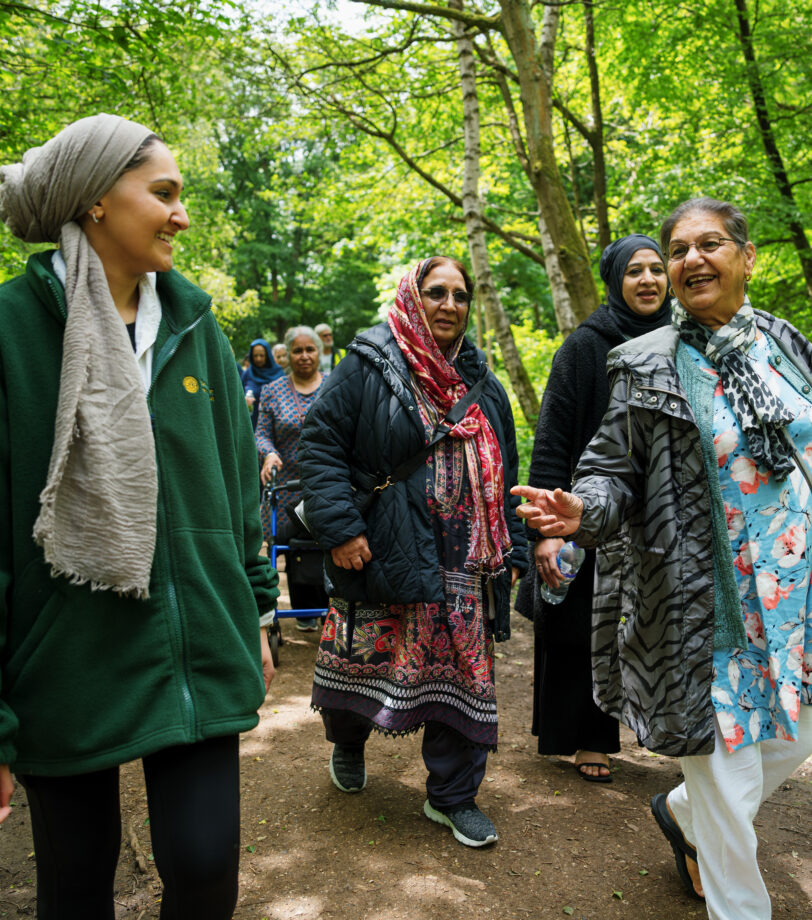Mission-led government
In her first speech as Chancellor, Rachel Reeves reiterated a point she made throughout the election campaign: this government faces the most challenging political inheritance since the Second World War.
This highlights the paradox facing Labour as it returns to office after 14 years. The country has made a clear and decisive vote for “change”. Yet there are deep constraints on many of the traditional levers for realising that change.
This is something Labour’s manifesto confronted head on. Its key argument is that stability is the foundational change we need; the platform from which tangible, incremental progress can be made. Rather than making grand promises that will dissolve on contact with the realities of office, Labour has - as the Director of UCL Policy, Marc Stears puts it - promised “rather humble actions in which we can all play a part, rather than bold solutions to be heroically imposed from on high”.
At the heart of this lies a new approach: mission-driven government. This means – according to Labour’s manifesto - “focusing on ambitious, measurable, long-term objectives” and developing a new style of governing that is “more joined up, pushes power out to communities and harnesses new technology”.
From our vantage point at Locality, we see communities all around the country who are more than ready to join this “mission”. Over the last decade, in the most trying of conditions, they have worked tirelessly to bring practical change and economic opportunities to their neighbourhoods. While chaos has reigned at Westminster, they have rolled up their sleeves and got on with the patient work of turning their places around.
This is a story of determined local people finding workarounds to get things done. The challenge we set politicians in the Locality Manifesto was: imagine how much more we could achieve with co-ordinated, long-term support systems in place?
We see this in particular when it comes to Labour’s priority mission to kickstart economic growth. Community organisations play a key role in local economic development in the disadvantaged neighbourhoods they serve. They generate and retain wealth, they create good local jobs, they provide employment and skills training. But so often they are doing this in isolation, in spite of wider economic strategies.
The new government’s missions provide an opportunity to do things differently and build a new partnership together. It doesn’t require the new government to spend lots more money it doesn’t have. It certainly doesn’t require the central state to try and fix all the problems itself. What it requires is a series of big reforms to rewire policy so it supports community power rather than standing in its way.
Labour have already set out the outlines of what this might look like. In the party’s first week in power, here we present some key areas where community power can fill in the gaps.
Mayors, mayors everywhere, but where’s the community power?
It is clear from Labour’s manifesto and policy documents produced in opposition that sub-regional devolution will be a priority for the party in power. The sight of the Metro Mayors walking into Downing Street to meet the new Prime Minister shows this partnership is important to the new government. This devolution is a vital “first step” to unlocking the full potential of our communities. The introduction of combined authorities has seen important decision-making powers shift from Whitehall to regional leaders, who have a much clearer view of their areas’ particular strengths and challenges, and a greater ability to design tailored programmes and policy.
However, it is not the case that this kind of devolution will automatically lead to more community power at a more hyper-local level. Our experience is that combined authorities can simply shift centralisation from Whitehall to the sub-regional level. In many cases, they actually suck powers up from local authorities, increasing the distance from local communities.
We therefore think that the sub-regional level is the right starting point for an accelerated devolution journey. But it must not be the end point.
Labour’s proposed Take Back Control Bill provides the opportunity to take on this challenge and do what successive governments have failed to do: achieve a decisive reset and make real power something people can feel in their own communities.
The key to doing this will be to establish new decision-making powers at neighbourhood level to ensure that power “sticks” to local communities. For devolution not to remain remote, power needs to be embedded right at the heart of our neighbourhoods. And for that to happen, there needs to be some kind of vehicle to hold that power, and to exercise it.
The We’re Right Here campaign has proposed the idea of Community Covenants: power sharing arrangements between local authorities and local communities at the neighbourhood level. The Take Back Control Bill should look to establish these so that devolution of power continues onward from the sub-regions deep into our neighbourhoods.
Building power through community ownership
Alongside developing detailed plans for how a Labour government will push power downwards, it should also think about how it will build it from the bottom up.
Community ownership is a critical means for doing this. It enables local people to generate and retain wealth for their neighbourhoods, sustain and direct their own activities, provide an independent voice for their community, and operate at a scale where they can work collaboratively with the public sector. It is an important way for communities who have been minoritised and excluded to take control and build power over the long term.
The New Labour government kickstarted support for community ownership, from establishing the Community Asset Transfer mechanism to creating the Asset Transfer Unit.
Keir Starmer’s government has already signalled its desire to pick up this baton and run with it. Labour has committed to introduce a Community Right To Buy, building on the existing Community Right to Bid, to give communities first refusal when listed Assets of Community Value come up for sale.
This powerful new right would be a huge step forward, giving communities a real chance to preserve and control the important places and spaces in their neighbourhoods. However, as We’re Right Here point out, it will only do this if communities are able to raise the required funds. Extending the moratorium from six to 12 months – as Labour propose - would help. But this is an area where continued funding is required - upfront investment which will reduce costs in the long run (and which will be particularly helpful to struggling local councils). We must seize this opportunity, in particular in disadvantaged neighbourhoods and to support minoritised communities.
So we believe it is crucial that a new Community Right to Buy is backed by a commitment to continue funding community ownership, with an extended and expanded Community Ownership Fund. Since it was introduced in 2021, the Community Ownership Fund has achieved huge impact, helping inspiring local groups breathe new life into pubs, police stations, schools, music halls and more.
But as we put it in our pre-election manifesto, it is only scratching the surface when it comes to the potential power of community ownership to build thriving neighbourhoods. We need community ownership to go wider and deeper – spreading it across all areas of government and expanding its reach into communities. So as well as extending and expanding the Community Ownership Fund, we are calling on the next government to establish a new National Community Ownership Strategy tasked with coordinating the intentional development of community ownership opportunities across government.
The right homes in the right places
Planning reform and housebuilding – one of Labour’s top early priorities – is another area where a key Labour mission can be supported by community power.
While these issues can be politically fraught, Labour’s manifesto recognises that local people are allies not enemies in its mission to “get Britain building again”, pledging to “ensure local communities continue to shape housebuilding in their area”.
Neighbourhood planning is a tried and tested means of doing this, and it could play an even bigger part in embedding community power and local participation in a revised planning regime. Well over 1,000 areas have now brought local people with different views together to agree a neighbourhood plan, with thousands more in development.
According to the Commission on the Future of Localism, neighbourhood planning has been the most successful of the Localism Act’s community rights, due to its mix of real statutory weight and funded technical advice and support.
Crucially neighbourhood planning is pro-growth: independent research shows that areas with neighbourhood plans allocate more land for housing than areas without one.
This is in lock step with what Labour has said about its plans for reform, which “will enhance local communities power and voice over ‘how’ housing is built to best service local people while challenging those who question if the homes people need should be built at all”.
To power up planning reform, Labour should therefore continue to provide support for neighbourhood planning, enabling neighbourhood planning groups to pursue housing growth and economic regeneration goals across England. It should also target additional support in disadvantaged areas to ensure these areas benefit from growth. And establishing Community Covenants would help ensure areas without existing parish councils can take up the opportunity of neighbourhood planning.
Community-Led Housing should also form an important part of Labour’s plans to tackle the housing crisis. There is a growing movement of community organisations building small-scale, locally developed housing that is designed and managed according to local priorities. While building homes at this scale will not fix the housing crisis on its own, it provides a vital part of the policy mix. It means local people can ensure there are affordable housing options for all, with a mix of tenures, so families can stay in the area as they grow, and older people can downsize and still be near loved ones. It enables empty buildings to be brought back to life, and the small plots of land big developers ignore put to productive use.
Labour has the opportunity to turbocharge community-led housing, embedding it in long-term housing strategies, and avoiding the stop start we have experienced over the last decade of centralised one-off funding programmes.
Conclusion
In our pre-election “manifesto”, we set out a number of big reforms which chime with Labour’s rapidly emerging plans for power. From putting communities in charge of economic development funding, to devolving employment and skills support, to prioritising prevention in public services: the solutions to the huge challenges this government faces will invariably be found at the local level.
The new Government clearly gets this, and pushing power out of Westminster sits at the heart of its bold plans to establish mission driven government.
Keir Starmer has said how his “fundamental belief is that those with skin in the game are the ones who know best what they need”. There is no-one with greater “skin in the game” than local community organisations, who are deeply embedded in their places and work side by side with residents to build thriving neighbourhoods together.
So while Labour’s plans to transfer power out of Whitehall has started this week with a meeting of Mayors, the ultimate destination must be our local communities. At Locality, we look forward to working with the new government to help it achieve what we believe is the foundation of its mission to rebuild Britain.



